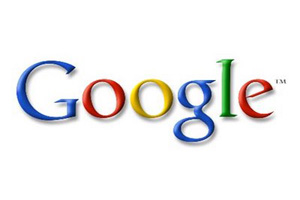Caffeine peps up Google's search engine
Continuous indexing means results are fresher and faster, says Google, taking the fight to Bing but moving the goalposts for SEO professionals.

Sign up today and you will receive a free copy of our Future Focus 2025 report - the leading guidance on AI, cybersecurity and other IT challenges as per 700+ senior executives
You are now subscribed
Your newsletter sign-up was successful
Google has given its search engine a major speed boost with Caffeine, a new indexing system that it claims delivers search results "up to 50 per cent fresher".
In development for around a year, Caffeine doesn't affect how search results look, but it completely changes how they work, with Google saying the switch to the new system opens up the "largest collection of web content we've offered".
Google first lifted the lid on the Caffeine project in August last year, calling the set of under-the-hood tweaks "the first step in a process that will let us push the envelope on size, indexing speed, accuracy, comprehensiveness and other dimensions".
In rolling out the technology to its live search engine, Google has now revealed more on how exactly it is going about that process. Key to the increase in speed and "freshness" is a removal of the linear process of updating search results in layers. With Caffeine, the updating process is far more dynamic, with content being added continually.
"To refresh a layer of the old index, we would analyse the entire web, which meant there was a significant delay between when we found a page and made it available to you," Google software engineer Carrie Grimes explained. "With Caffeine, we analyse the web in small portions and update our search index on a continuous basis, globally. As we find new pages, or new information on existing pages, we can add these straight to the index."
What this means in practical terms is that real-time feeds and updates an increasingly important part of Google's search strategy can be better integrated into search results from the likes of blogs and social networks.
While Google's hold on the search engine market remains a strong one it still holds a near-85 per cent global share it has seen Microsoft's Bing take up the slack from many of its rivals to become an increasingly strong rival, largely on the size and comprehensiveness of its search index.
Sign up today and you will receive a free copy of our Future Focus 2025 report - the leading guidance on AI, cybersecurity and other IT challenges as per 700+ senior executives
Whether Google's speed claims are borne out will only become clear in time social news blog Mashable claims side-by-side tests showed negligible differences between old and new systems. One clear difference the site did point out was in how SEO rules were implemented.
"SEO professionals, your job just got a lot harder," Mashable says. "The algorithm's definitely different. It has more reliance on keyword strings to produce better results."
Google says it will continue to update its search engine in the coming months.
-
 How the rise of the AI ‘agent boss’ is reshaping accountability in IT
How the rise of the AI ‘agent boss’ is reshaping accountability in ITIn-depth As IT companies deploy more autonomous AI tools and agents, the task of managing them is becoming more concentrated and throwing role responsibilities into doubt
-
 Hackers are pouncing on enterprise weak spots as AI expands attack surfaces
Hackers are pouncing on enterprise weak spots as AI expands attack surfacesNews Potent new malware strains, faster attack times, and the rise of shadow AI are causing havoc
-
 Researchers outline real-time search engine plans
Researchers outline real-time search engine plansNews Glasgow university computer scientists want to give city dwellers access to a real-time information source by 2014.
-
 Google promises 'fresher' search
Google promises 'fresher' searchNews The internet giant looks to make its searches more timely.
-
 Yahoo takes a bite out of Google's search lead
Yahoo takes a bite out of Google's search leadNews The latest comScore's latest search engine figures for the US sees Yahoo rise and Google fall as third-placed Bing prepares to take over Yahoo's North American search duties.
-
 Bing lockdown for Windows Phone 7 handsets?
Bing lockdown for Windows Phone 7 handsets?News Integration with the Tell Me voice-control feature means Windows Phone 7 devices will be Bing-only by default, a situation even OEMs won't be able to change.
-
 Google adds page load times to search rankings formula
Google adds page load times to search rankings formulaNews Speed is added to the mysterious Google page rankings melting pot as search giant tries to encourage webmasters to take a closer look at page load times.
-
 Wolfram Alpha drops app price from $50 to $2
Wolfram Alpha drops app price from $50 to $2News Wolfram Alpha has announced a dramatic price drop and refunds to attract more users.
-
 Google sees Hong Kong traffic jump
Google sees Hong Kong traffic jumpNews Google Hong Kong's market share has jumped to three per cent of global market share - if it falls back, it may be a sign China has cut access.
-
 Today in tech: Google exits China, our skin becomes the keyboard
Today in tech: Google exits China, our skin becomes the keyboardNews Pressed for time but need to keep on top of tech news? Look no further than this daily roundup.